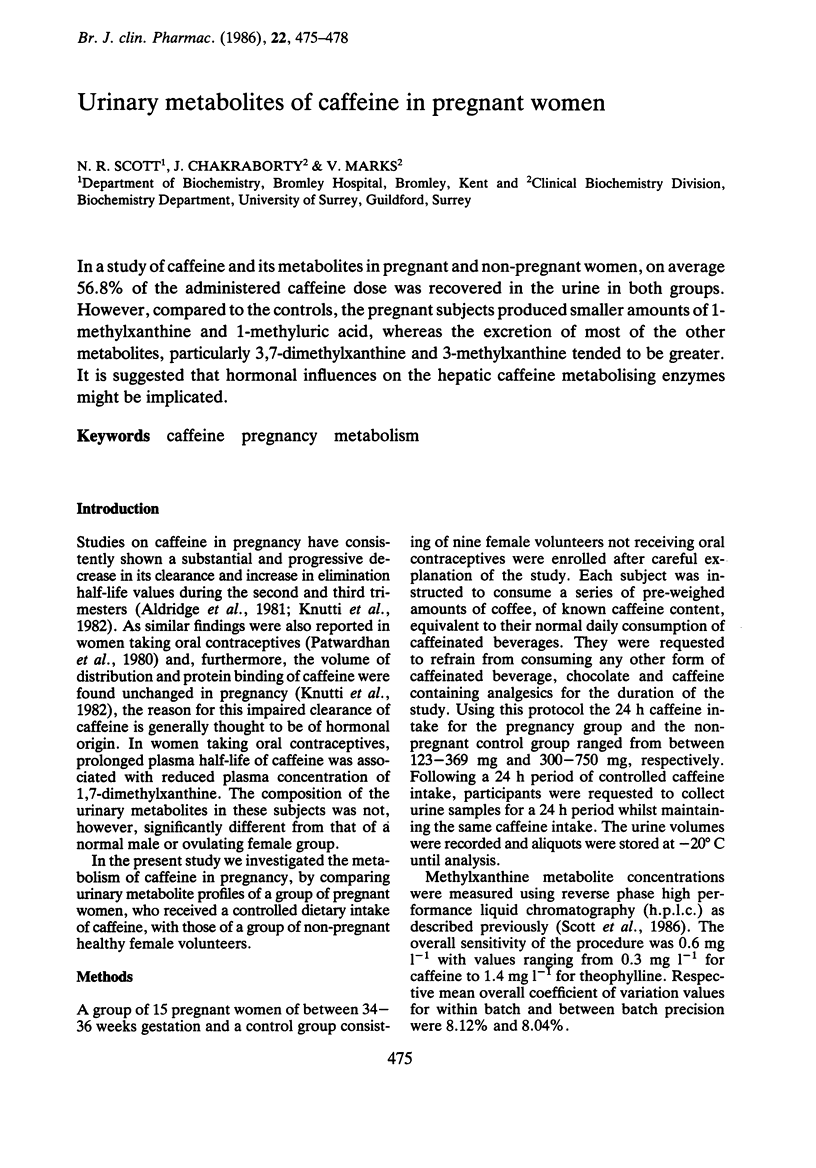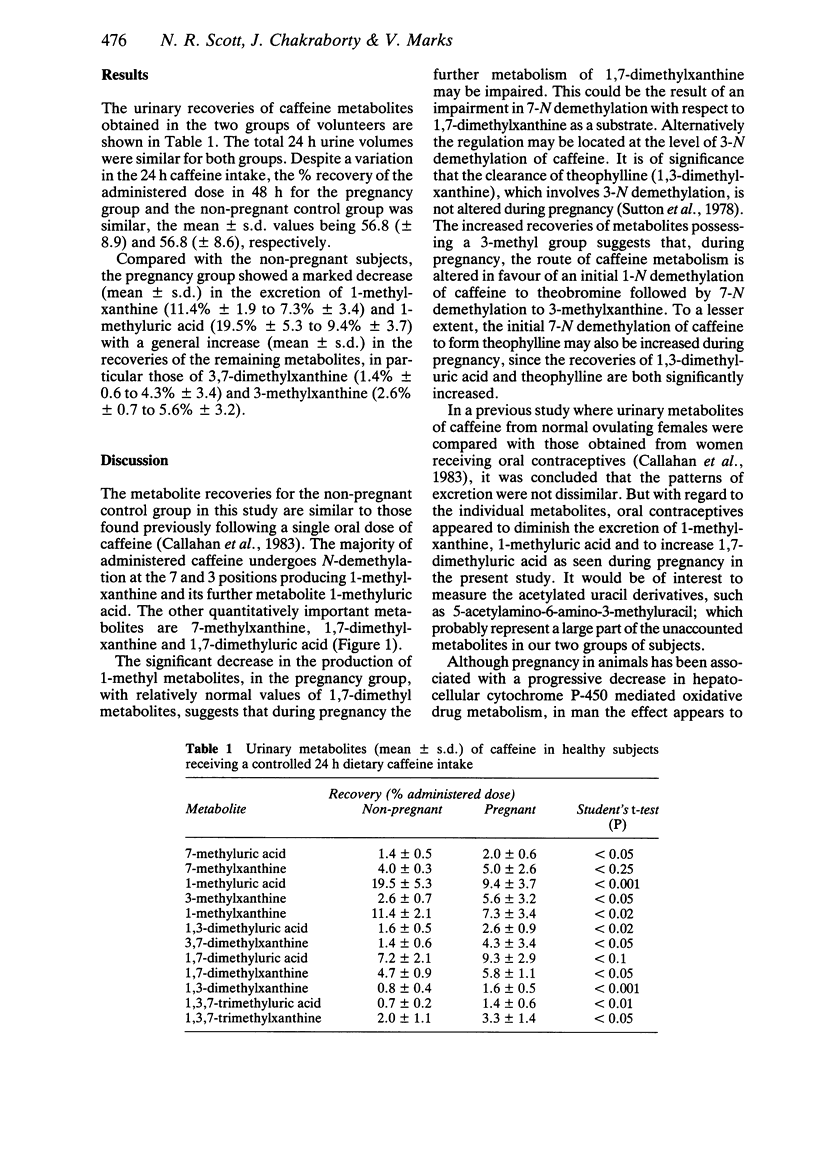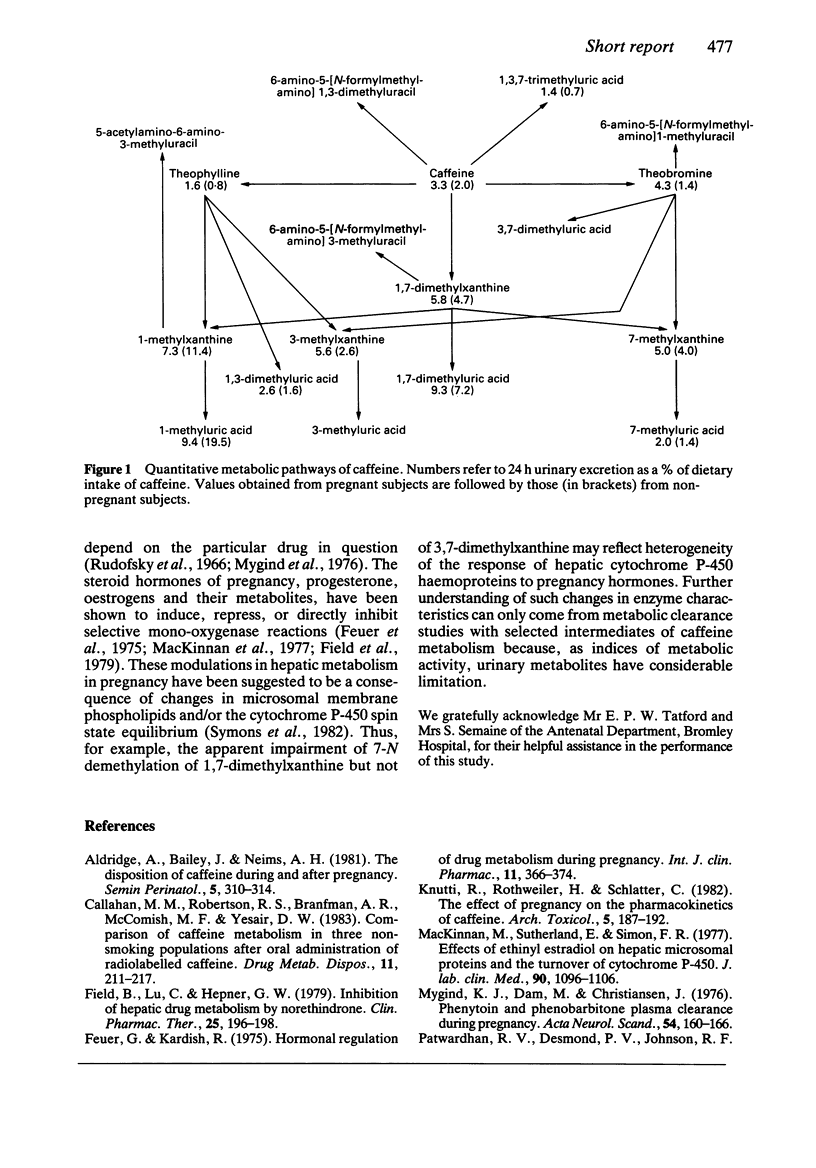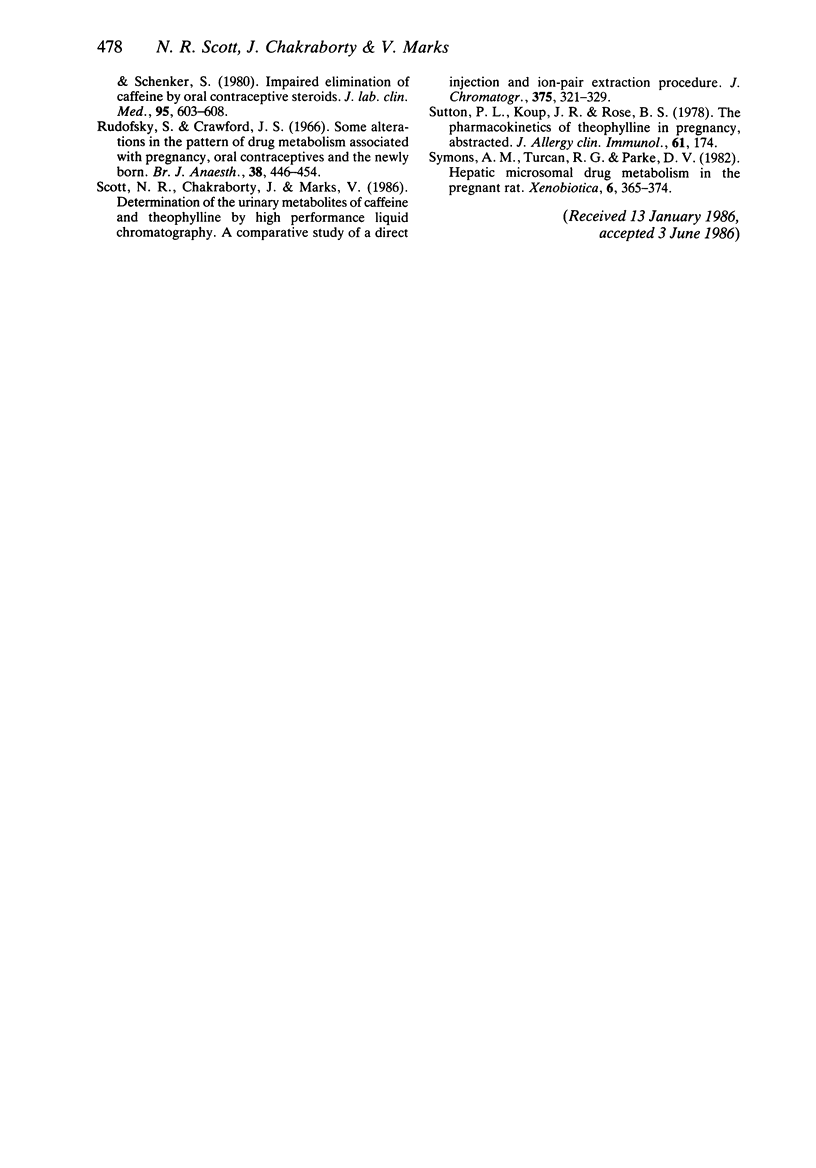Abstract
In a study of caffeine and its metabolites in pregnant and non-pregnant women, on average 56.8% of the administered caffeine dose was recovered in the urine in both groups. However, compared to the controls, the pregnant subjects produced smaller amounts of 1-methylxanthine and 1-methyluric acid, whereas the excretion of most of the other metabolites, particularly 3,7-dimethylxanthine and 3-methylxanthine tended to be greater. It is suggested that hormonal influences on the hepatic caffeine metabolising enzymes might be implicated.
Full text
PDF



Selected References
These references are in PubMed. This may not be the complete list of references from this article.
- Aldridge A., Bailey J., Neims A. H. The disposition of caffeine during and after pregnancy. Semin Perinatol. 1981 Oct;5(4):310–314. [PubMed] [Google Scholar]
- Callahan M. M., Robertson R. S., Branfman A. R., McComish M. F., Yesair D. W. Comparison of caffeine metabolism in three nonsmoking populations after oral administration of radiolabeled caffeine. Drug Metab Dispos. 1983 May-Jun;11(3):211–217. [PubMed] [Google Scholar]
- Crawford J. S., Rudofsky S. Some alterations in the pattern of drug metabolism aociated with pegnancy, oral contraceptives, and the newly-born. Br J Anaesth. 1966 Jun;38(6):446–454. doi: 10.1093/bja/38.6.446. [DOI] [PubMed] [Google Scholar]
- Feuer G., Kardish R. Hormonal regulation of drug metabolism during pregnancy. Int J Clin Pharmacol Biopharm. 1975 Jun;11(4):366–374. [PubMed] [Google Scholar]
- Field B., Lu C., Hepner G. W. Inhibition of hepatic drug metabolism by norethindrone. Clin Pharmacol Ther. 1979 Feb;25(2):196–198. doi: 10.1002/cpt1979252196. [DOI] [PubMed] [Google Scholar]
- Knutti R., Rothweiler H., Schlatter C. The effect of pregnancy on the pharmacokinetics of caffeine. Arch Toxicol Suppl. 1982;5:187–192. doi: 10.1007/978-3-642-68511-8_33. [DOI] [PubMed] [Google Scholar]
- Mackinnon M., Sutherland E., Simon F. R. Effects of ethinyl estradiol on hepatic microsomal proteins and the turnover of cytochrome P-450. J Lab Clin Med. 1977 Dec;90(6):1096–1106. [PubMed] [Google Scholar]
- Mygind K. I., Dam M., Christiansen J. Phenytoin and phenobarbitone plasma clearance during pregnancy. Acta Neurol Scand. 1976 Aug;54(2):160–166. doi: 10.1111/j.1600-0404.1976.tb04789.x. [DOI] [PubMed] [Google Scholar]
- Patwardhan R. V., Desmond P. V., Johnson R. F., Schenker S. Impaired elimination of caffeine by oral contraceptive steroids. J Lab Clin Med. 1980 Apr;95(4):603–608. [PubMed] [Google Scholar]
- Scott N. R., Chakraborty J., Marks V. Determination of the urinary metabolites of caffeine and theophylline by high-performance liquid chromatography. A comparative study of a direct injection and an ion-pair extraction procedure. J Chromatogr. 1986 Mar 7;375(2):321–329. doi: 10.1016/s0378-4347(00)83724-x. [DOI] [PubMed] [Google Scholar]
- Symons A. M., Turcan R. G., Parke D. V. Hepatic microsomal drug metabolism in the pregnant rat. Xenobiotica. 1982 Jun;12(6):365–374. doi: 10.3109/00498258209052477. [DOI] [PubMed] [Google Scholar]


